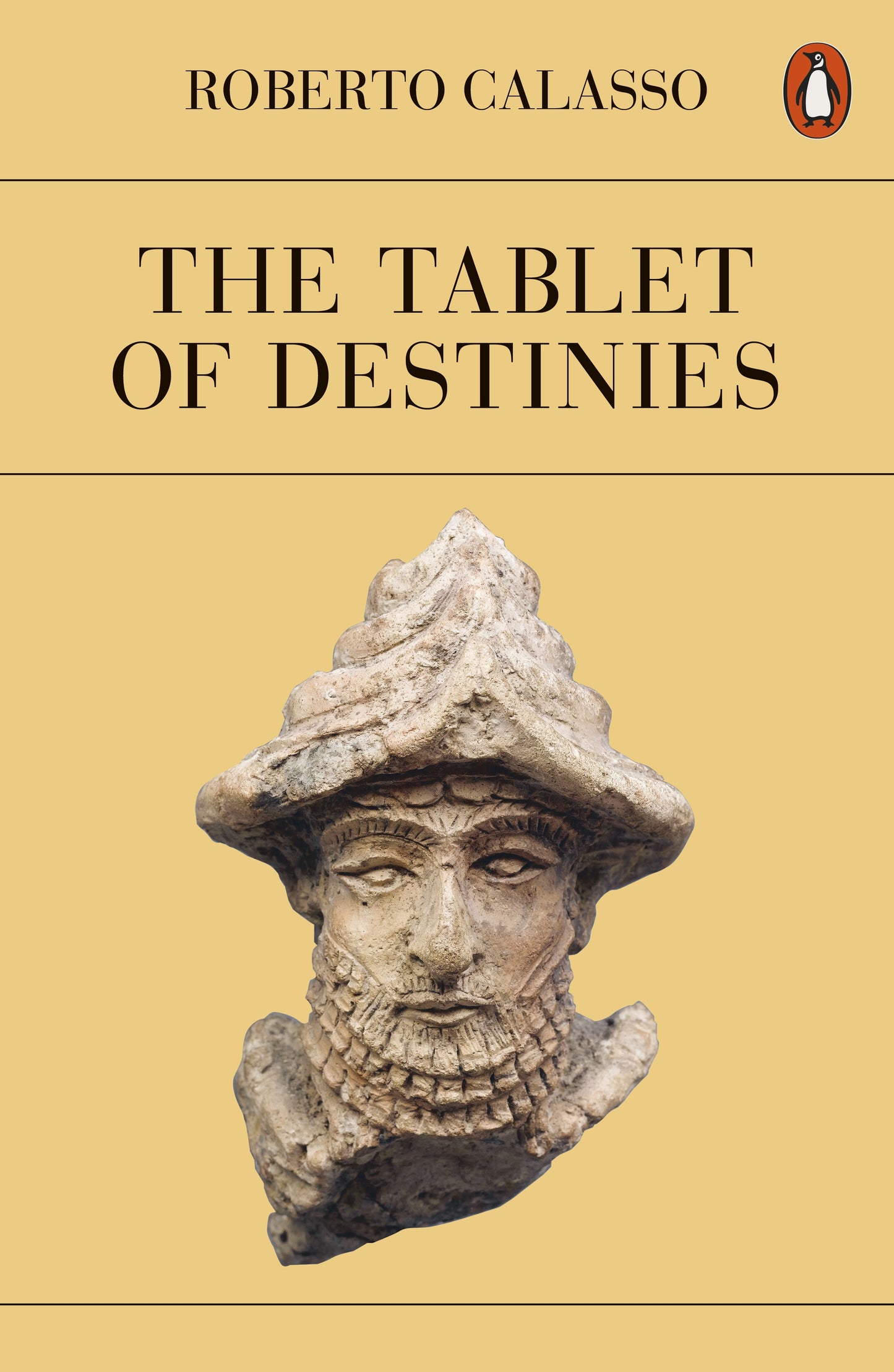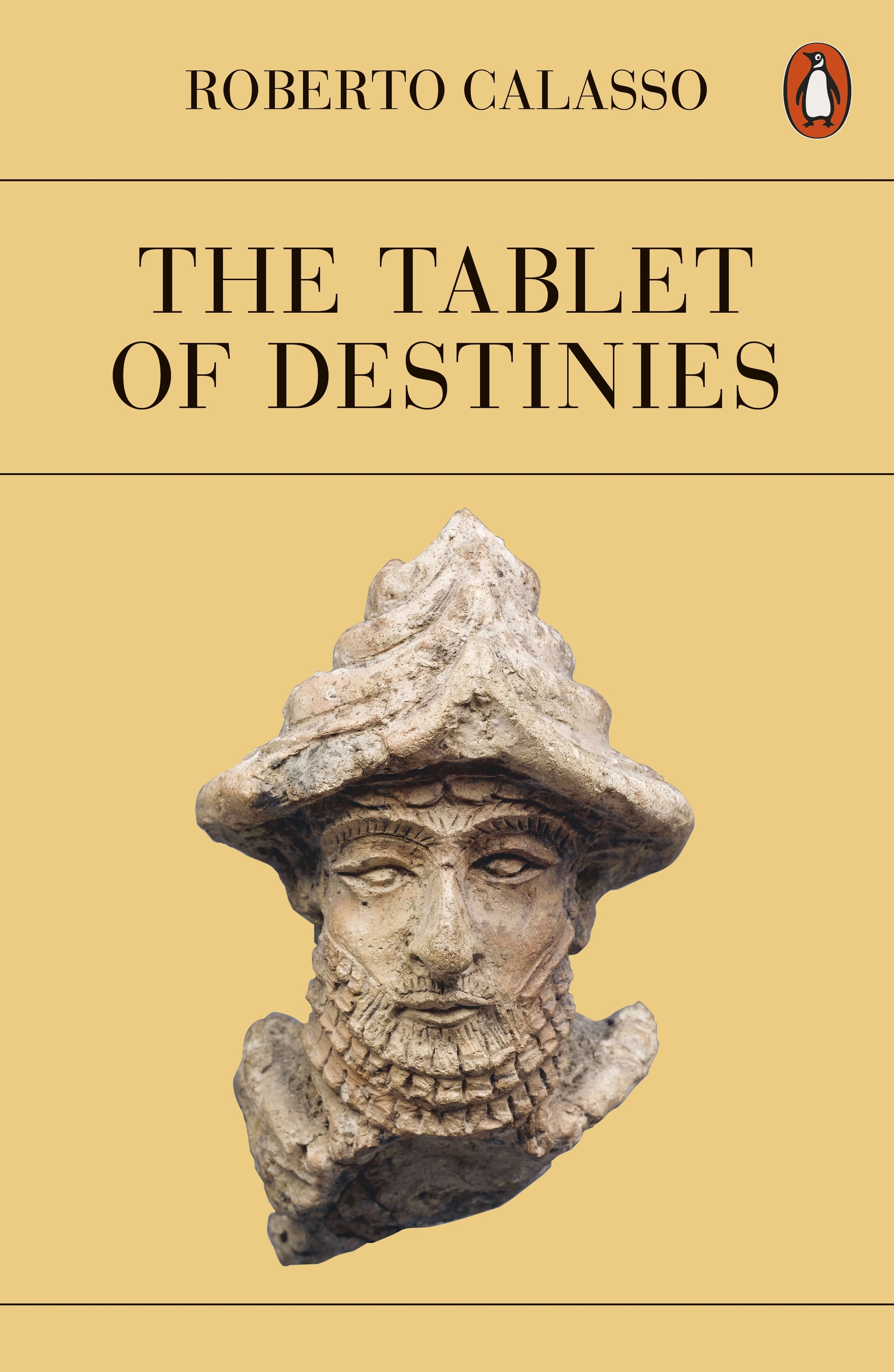Robert Calasso
Tablet Of Destinies
Tablet Of Destinies
Couldn't load pickup availability
Lindsay's Review
A splendid new reinterpretation of the Sumerian cuneiform clay tablet’s account of the great deluge and its aftermath. The fascinating pre-Biblical world of the Anunnaki’s reign on earth has been assembled by Calasso from the surviving stories, snap-shot frozen in time, and buried under the burnt library of Uruk, and now re-stitched together in a readable mythological format. There is much of fascination for any reader interested in Sumerian literature, even those without a knowledge of the somewhat fractured cuneiform translations.
Readers familiar with the works on the tale of Gilgamesh, the first poetry of Enheduanna the High Priestess of Ishtar, and the Kolbrin Bible, will gain greater insight into how those accounts form a single ancient narrative. Written in a style that still captures the mythological roots of the early Sumerian world view, Calasso’s stitching together of the various myths captures a day-to-day Sumerian reality of living in close proximity with their very real and alive gods.
The stories told by Utnapishtim, the pre-Biblical Noah, to Sinbad allow the artifice of this novel narrative to brush away the dryness of the original ancient tales, and unearth a knowledge now brought to light from the lost caverns of history. Although these accounts are some of the earliest known translated writing, many of the characters and themes are today commonly still known from their later influence on Greek mythology, Old Testament Bible, and even the poetic musings of ancient and modern authors. Anyone who has interest in mythology will thoroughly enjoy this small retelling of our ancestral beginnings.
Publishers Reviews
An immersive and mesmerizing narrative that reimagines the Mesopotamian myth of the Great Flood
A long time ago, the gods grew tired of humans and decided to send a flood to destroy them. But Ea, the god of fresh underground water, didn't agree. He advised one of his devotees, Utnapishtim, to build a quadrangular boat to house humans and animals, and saved these living creatures from the Flood.
Rather than punish Utnapishtim for his disobedience, Enlil, King of the gods, granted the mortal eternal life and banished him to the island of Dilmun. Thousands of years later, when Sinbad the Sailor is shipwrecked and arrives on that very same island, the two begin a conversation about courage, loss, salvation and sacrifice.
Share


